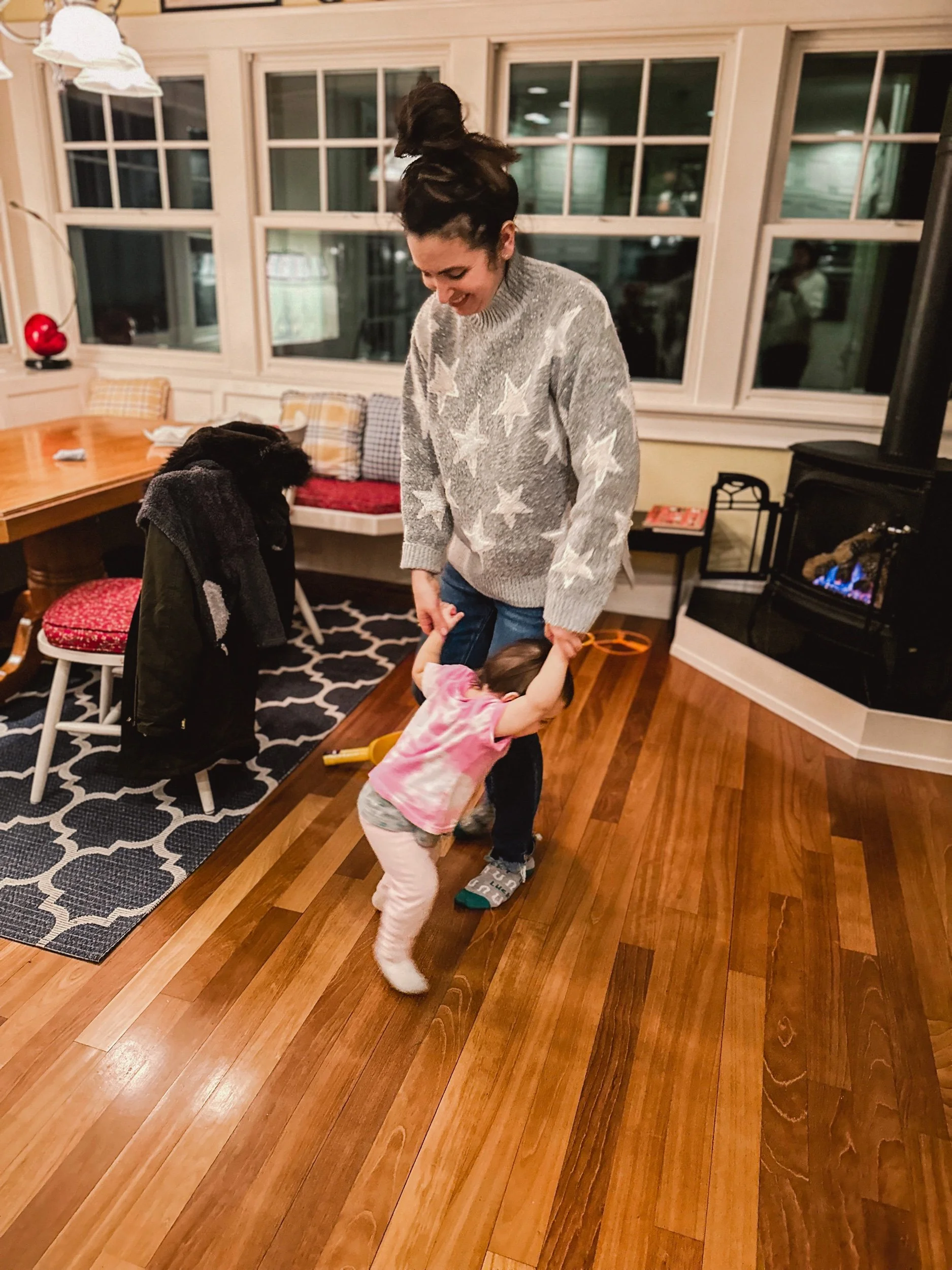Yeah, that’s me being a lovely example of not practicing mindful eating! Or am I? 3 bite rule?! Side note: I love the dapper groomsman strutting across the floor! Photo by Kristin LaVoie
Hello bride tribe!!
Today I wanted to talk to you about one of my favorite things to work on when I coach clients one-on-one, Intuitive Eating. Also, often referred to as “Mindful Eating,” it’s all about finding your own flow.
It’s interesting, because my coaching clients tend to fall into one of two camps. The first: “tell me what to do and I’ll do it” and the second, “I already know what to do but I have trouble executing.” In all actuality, both types of clients are desperately in need of more mindfulness in their own lives and routines. Client one is great at doing whatever they need to do to “see results”- and often times ignore their bodily cues. Client two may recognize their body cues more easily - but have a hard time finding the right rhythm of mindfulness in their day-to-day lives. Either way- we end up working on becoming more mindful and intuitive, especially in regards to consumption!
If you had a standard American childhood (I’m sure this applies to many places outside of America as well, but not sure where to draw the line, lol) you grew up on three main meals and then several snacks throughout the day. You may have dropped one or two of those as you grew up and life became busy and hectic- but I’m guessing you probably still think in terms of 3 meals a day (even if you’re consciously skipping one)! We have a societal routine of breakfast, lunch, and dinner every day. It’s just what we do! And nothing is wrong with eating 3 meals–in fact, the Shed program is built around it! But the key here is - if you are having three square meals a day- are you actually hungry when you eat? Or are you forcing it? Are you starving by mealtime? Are you eating quickly to get all the food in on your lunch break? I often have three meals a day, but I listen to my body cues to tell me when to eat and how much. We need to tune into our bodies to figure out what it needs! Vs what it’s scheduled for.
But before we look inward, we need to clear out some of the bad habits that make it difficult to assess our bodily needs! It’s easier to follow your body’s cues when you aren’t exhausted, or surrounded by other people. For example, I am horrible at listening to it when I am at parties or around my mother (lol, seriously though), but I’m great at it during the work week when I’m predominantly by myself. The following includes some of the biggest culprits to preventing mindful, intuitive eating.
Basically, you want to avoid and break these habits:
emotional eating
Don’t eat when you are overly stressed, sad, or mad. 1) It’s hard to feel hunger (or it subsiding) when you are in extreme emotional states. 2) It can create a bad connection between food and emotion. You never want to rely on any substance to make feelings go away. This goes for wine too!
Eating because “it’s time to eat”
If you eat just because it’s lunch time but you are still full from breakfast, you are doing your body a disservice by eating. If you can, wait until you start to feel those hunger cues before starting the next meal. If work makes that tricky for you, try having small snacks on hand so that if you do get hungry and you are in a meeting you have something to hold you over.
Grazing
Similarly to above, grazing is a similar form of non-mindful eating. Have you ever been completely non-aware and you snap out of it when you are looking in the refrigerator? Boredom and eating just because are the opposite of mindful eating. Make sure you are actually interested in eating a snack before proceeding.
Technology at meal times
Eating while watching tv or looking at your phone is basically the death of mindfulness. It is very difficult to process what you’re eating when you are zoning out. It’s also a great way to get in the habit of eating dinner with your fiancé/e! Romance bonus points!
over eating because something is too delicious
By eating slowly, you will be able to listen to your hunger cues and not over indulge. If you are eating dessert- this is a great time to use the three-bite rule. Have three bites of the deliciousness and then stop. Most of the time, you will feel totally satisfied!
Seriously, this work can take a lifetime, so don’t beat yourself up if you catch yourself doing any of those things. Pick one to work on for the next two weeks, and then once you feel good about it, add another one to your healthy habit to do!
Now that you’ve cleared out your anti-mindful habits, now it’s time to add in some of the good stuff!
Things to incorporate:
1-minute body scans
Before eating, take one minute and close your eyes, and focus on every part of your body, one part at a time, from head to toes. You will be able to identify if you are tense, or stressed, famished, full, bored, or tired (or anything else!). So many times we turn to food when we are looking for a distraction. This will help you realize if you actually are hungry or if you are just looking for something to pass the time. It is maybe the biggest step in becoming in tune with your body, and in turn your eating habits!
drinking lots of water
Many times we think we are hungry when in fact, we are just dehydrated! The cue is very often confused in the body! Water will make you feel great and will make sure you are tuning into your real hunger!
Eat slowly
Which also means, try to prevent extreme hunger when you can- because it is difficult to slow down when you are hangry! But when you slow down, you can fully appreciate all of the flavors of the wonderful meal you are eating, you will know when you are full, because your stomach will have time to communicate with the brain, you won’t overeat and you will enjoy more! What’s not to love about all of that??
There, for sure, is an art to becoming more mindful and intuitive around your eating habits. And even if you are tuned in–it doesn’t always mean you listen! Mindfulness is a practice just like anything else. It’s not something that is easily checked off on your list of to dos. But, when you add the practice to your life you will be able to listen to yourself and know what you need. No long term coaching required. Once you find your own internal rhythm and know how to listen to your body, you will never have to go on a diet again! It is hands down maybe the best habit to get into for living a healthy lifestyle for the long run!
What are you going to switch up to have more mindfulness in your routine? Leave me a note below or on social! -AHS







